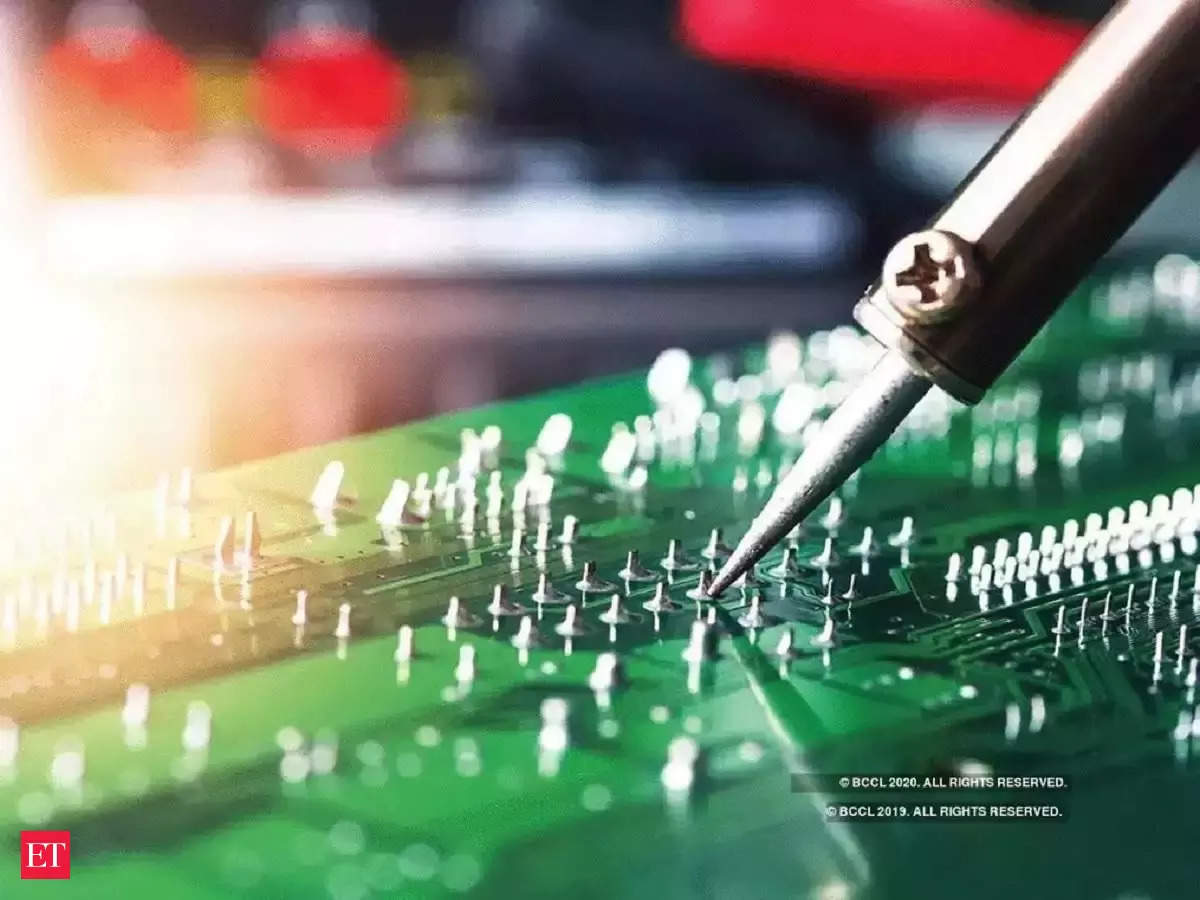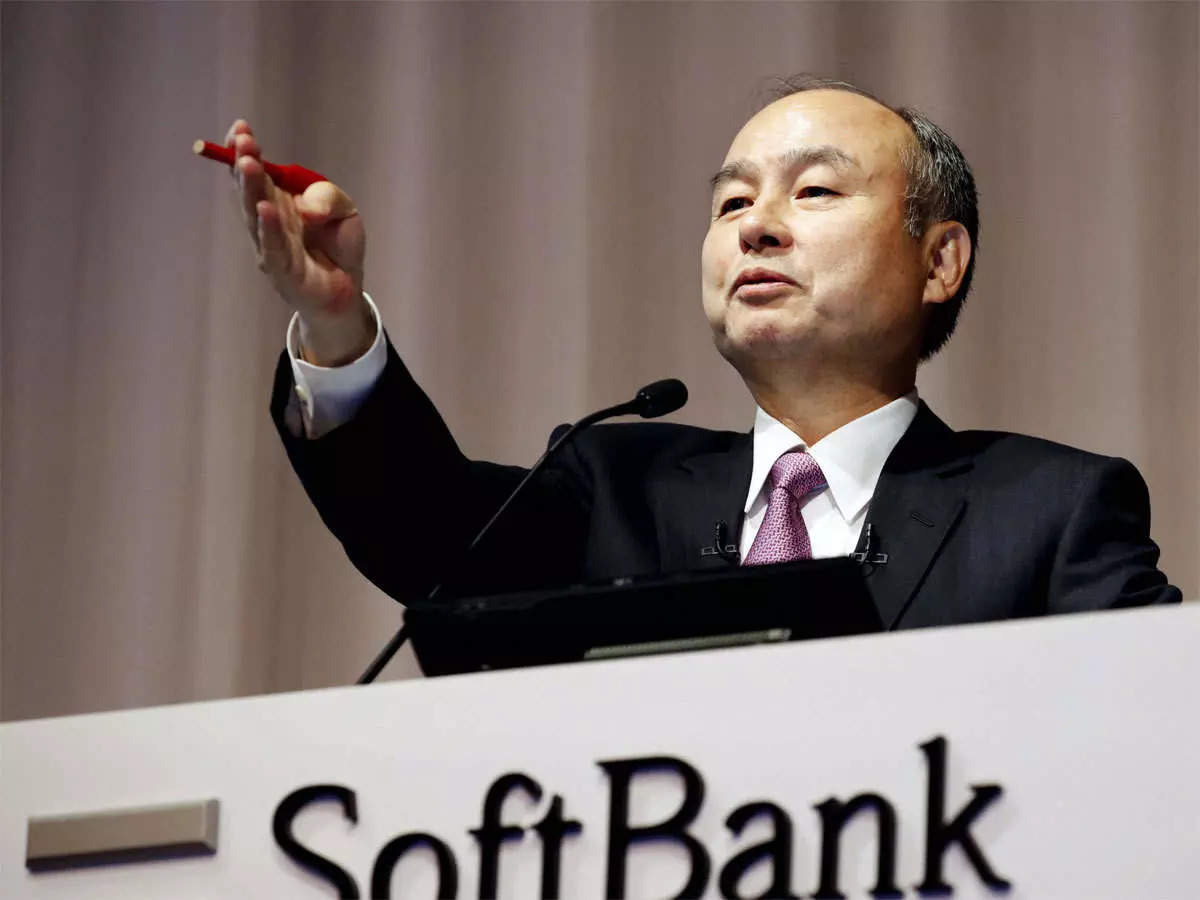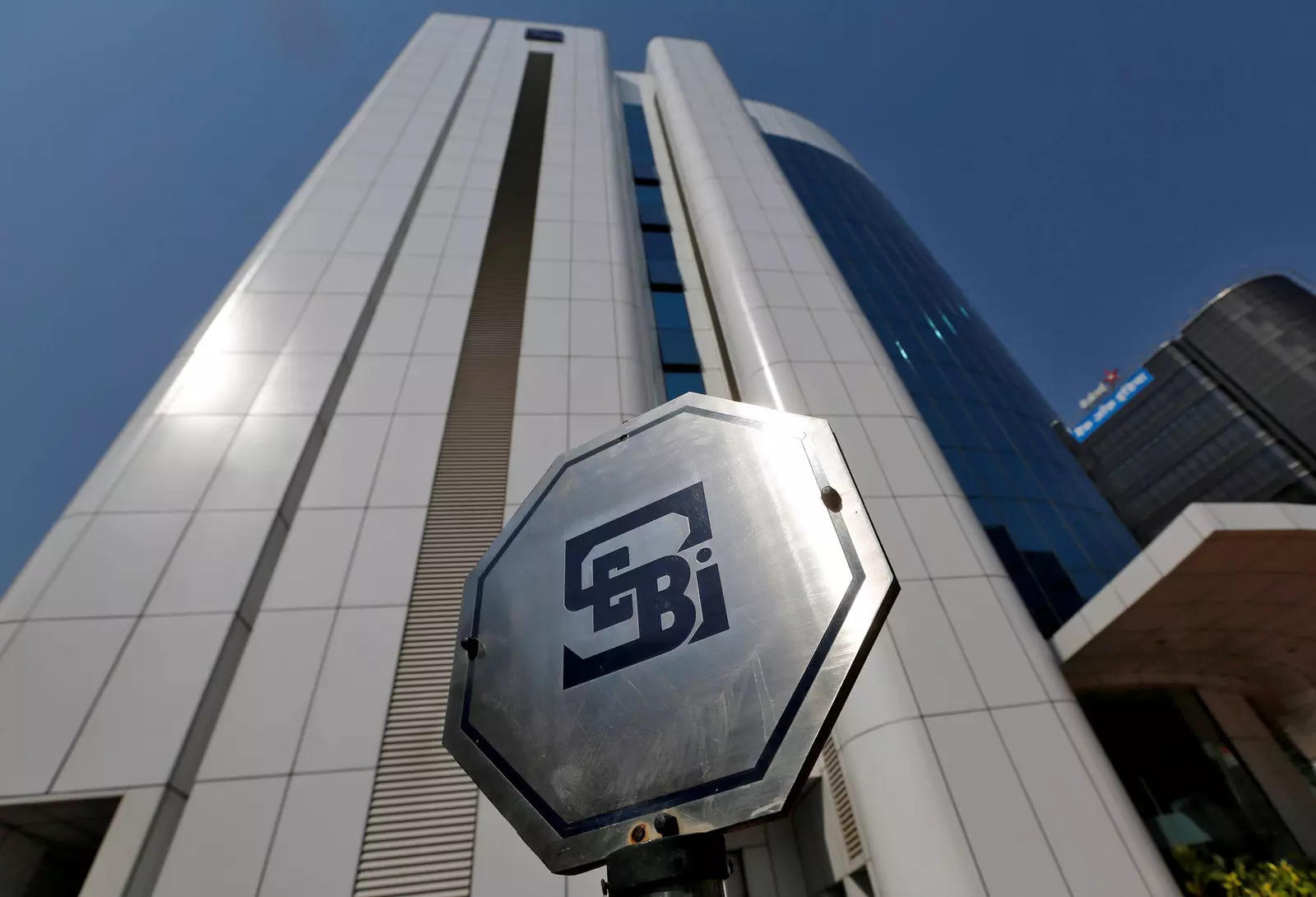Business News›Tech›Newsletters›Tech Top 5›Govt may double IT hardware incentives; layoffs begin at SoftBank
 Daily Top 5 Daily Top 5 |
Govt may double IT hardware incentives; layoffs begin at SoftBank
Want this newsletter delivered to your inbox?
I agree to receive newsletters and marketing communications via e-mail

Thank you for subscribing to Daily Top 5
We'll soon meet in your inbox.
The Union government had in April 2021 launched a production-linked incentive scheme for IT hardware makers and while 19 companies applied for it, only one – Dell – met its production and investment targets in the first year. Manufacturers blamed the low incentive structure for the scheme’s failure. Now, the government has proposed increasing its outlay by 2.5 times and doubling the incentives to woo more companies.

Also in this letter:
■ Troubled SoftBank begins cutting staff: report
■ Sebi set to allow confidential pre-filing of IPO papers
■ US tech IPO market faces worst year since 2008 crisis

The government has proposed increasing its outlay for the production-linked incentive scheme for IT hardware by 2.5 times to around Rs 19,000 crore and double the incentives offered under it to encourage multinational companies such as Dell, HP, Apple, Samsung and Asus to increase manufacturing in the country.
Laptops, tablets, all-in-one PCs and servers are covered under the scheme. India currently imports 70-80% of the total IT hardware requirements.
Driving the news: According to a draft of the revised scheme — PLI for IT Hardware 2.0 — the government will now offer incentives of 4-5.75% over five years, against the current 1-4% over four years, officials aware of the matter told us. The financial outlay will increase from Rs 7,350 crore to about Rs 19,000 crore, they said.
Details: The draft of the revised scheme will soon be discussed with industry representatives before being sent to the Cabinet for approval. All companies selected under the existing scheme will be allowed to participate in PLI 2.0.
Yes, but: Eligibility requirements will remain unchanged, including the localisation schedule under which firms need a domestic printed circuit board assembly (PCBA) line to bag a 4% benefit in the first year of the scheme.
Negotiations: Sources told us the industry had asked the government to offer incentives for up to eight years to ensure that smaller companies had a global competitive advantage. They also sought incentives in the range of 7-8% to improve the viability of manufacturing in India, a second official added.
More for local firms: Global companies can get benefits on laptops priced Rs 30,000 and above, and tablets priced Rs 15,000 and above. There is no slab for all-in-one PCs and servers. But domestic firms will get incentives on all the products, irrespective of their invoice value.
Troubled SoftBank begins cutting staff: report

Japan's SoftBank Group is cutting around 150 staff globally at its Vision Fund unit and SoftBank Group International, a person familiar with the matter told Reuters, as CEO Masayoshi Son retrenches following huge losses on his tech bets.
Details: Employees started receiving notices on Thursday, the person said, adding the cuts will affect around 30% of employees across the two businesses. Major cost centres including the US, Britain and China will be affected.
The cuts will affect staff in the investment teams and back-office staff in departments such as finance and legal, a second source told Reuters.
Worse than expected: In August, Son pledged to cut costs after the Vision Fund unit reported a record $50 billion loss in the first six months of 2022.
But on Monday he pledged to go further by limiting the second fund just to managing its current portfolio of investments, while planning workforce cuts at Vision Fund and cost reductions across the group. "We need to cut costs with no sacred areas," Son said.
Twice bitten: The SoftBank chief had already suffered a series of high-profile reversals after big bets by the first Vision Fund in late-stage startups such as WeWork soured, prompting him to tighten investment controls with the second fund.
But the billionaire said Vision Fund 2, which has taken smaller stakes in a larger number of companies, had invested at frothy prices. Its portfolio of 269 firms, which cost $48.2 billion to acquire, was worth just $37.2 billion at the end of June.
"If we had been more selective and invested better we wouldn't have received this heavy blow," Son said.
Misery loves company: Hedge fund Tiger Global, which competes with "unicorn hunter" Son on deals, saw its flagship fund fall 50% in the first half of the year after it underestimated the impact of surging inflation on markets.

The Securities and Exchange Board of India (Sebi) is set to allow companies holding initial public offerings (IPOs) to submit confidential pre-filing of offer documents; relax open offer pricing norms for the disinvestment of public sector undertakings (PSUs); and seek enhanced disclosures from startups in offer documents on the IPO issue price.
What this means: Currently, an issuer has to file a draft offer document with Sebi with detailed disclosures, which may be beneficial to competitors. Typically, getting approval takes 30-70 days after the draft offer document is filed.
Under the new rule, a company will only have to publicly announce that it has pre-filed offer documents with Sebi and the exchanges. It will also have to state that this doesn’t necessarily mean it will hold an IPO.
Later, if it decides to proceed with the offer, it will have to update the document with Sebi’s observations and the latest financials before making it public.
Significant for tech firms: “The move by Sebi is very progressive and will be particularly advantageous to new-age, high-growth companies [looking] to maintain the confidentiality of financials and operational data in a competitive environment,” said Mehul Savla, partner, RippleWave Equity Advisors.
Also Read: Taxmen fish for info on investors in angel funds

In the 75th year of Independence, India is making several resolutions to build a new future. One that stands out is the collective aim of the country and its leadership to become self-reliant and a beacon of global development, whether in education, healthcare, defence, agriculture, technology or manufacturing.
Chip shot: In this pursuit, India has added a new goal – to become self-reliant in electronics system design and manufacturing (ESDM), with a special focus on semiconductor manufacturing, an area that has far-reaching geopolitical ramifications. Chips are ubiquitous in electronics – from washing machines and smartphones to cars, drones and military systems.
It is estimated that India's own consumption of semiconductors will cross $80 billion by 2026 and $110 billion by 2030. This requires a domestic ecosystem that can sustain supply without the need to depend on volatile global supply chains.
The need to have a strong ecosystem at home has become a worldwide phenomenon, with Western and Eastern countries alike investing in, expanding and upgrading chip manufacturing to thwart shortages experienced over the past two years because of Covid-induced disruptions and the geopolitical situation.
Click here to read the full column by Dr Ashwath Narayan CN, minister for higher education; IT & BT, science & technology; skill development, entrepreneurship & livelihood, Government of Karnataka.
US tech IPO market faces worst year since 2008 financial crisis

IPOs by US tech companies have sunk to their lowest levels since the 2008 financial crisis as stock market volatility, soaring inflation, and interest rate hikes have soured investor sentiment towards new listings, Reuters reported.
By the numbers: According to Refinitiv data, only 14 tech companies have floated their shares on stock exchanges so far this year, compared to 12 in 2009. The IPOs this year have raised $507 million, the lowest amount that has been raised through flotations since 2000.
Total IPO volumes fell 90.4% in the first nine months of this year, compared with last year.
Gloomy outlook: Analysts interviewed by Reuters said a steep drop in stock market valuations has deterred tech firms from pursuing stock market launches.
The forward P/E (price-to-earnings) ratio of the S&P Information Technology index was trading at 20.18 — the lowest level since April 2020.
The Renaissance IPO index, which captures the largest and most liquid US IPOs, has slumped 50.4% this year, compared with the S&P 500 index’s drop of 23%.
Today’s ETtech Top 5 newsletter was curated by Zaheer Merchant in Mumbai and Gaurab Dasgupta in New Delhi. Graphics and illustrations by Rahul Awasthi.

Also in this letter:
■ Troubled SoftBank begins cutting staff: report
■ Sebi set to allow confidential pre-filing of IPO papers
■ US tech IPO market faces worst year since 2008 crisis
Govt may double incentives for hardware makers, raise outlay to Rs 19k crore

The government has proposed increasing its outlay for the production-linked incentive scheme for IT hardware by 2.5 times to around Rs 19,000 crore and double the incentives offered under it to encourage multinational companies such as Dell, HP, Apple, Samsung and Asus to increase manufacturing in the country.
Laptops, tablets, all-in-one PCs and servers are covered under the scheme. India currently imports 70-80% of the total IT hardware requirements.
Driving the news: According to a draft of the revised scheme — PLI for IT Hardware 2.0 — the government will now offer incentives of 4-5.75% over five years, against the current 1-4% over four years, officials aware of the matter told us. The financial outlay will increase from Rs 7,350 crore to about Rs 19,000 crore, they said.
Details: The draft of the revised scheme will soon be discussed with industry representatives before being sent to the Cabinet for approval. All companies selected under the existing scheme will be allowed to participate in PLI 2.0.
Yes, but: Eligibility requirements will remain unchanged, including the localisation schedule under which firms need a domestic printed circuit board assembly (PCBA) line to bag a 4% benefit in the first year of the scheme.
Negotiations: Sources told us the industry had asked the government to offer incentives for up to eight years to ensure that smaller companies had a global competitive advantage. They also sought incentives in the range of 7-8% to improve the viability of manufacturing in India, a second official added.
More for local firms: Global companies can get benefits on laptops priced Rs 30,000 and above, and tablets priced Rs 15,000 and above. There is no slab for all-in-one PCs and servers. But domestic firms will get incentives on all the products, irrespective of their invoice value.
Troubled SoftBank begins cutting staff: report

Japan's SoftBank Group is cutting around 150 staff globally at its Vision Fund unit and SoftBank Group International, a person familiar with the matter told Reuters, as CEO Masayoshi Son retrenches following huge losses on his tech bets.
Details: Employees started receiving notices on Thursday, the person said, adding the cuts will affect around 30% of employees across the two businesses. Major cost centres including the US, Britain and China will be affected.
The cuts will affect staff in the investment teams and back-office staff in departments such as finance and legal, a second source told Reuters.
Worse than expected: In August, Son pledged to cut costs after the Vision Fund unit reported a record $50 billion loss in the first six months of 2022.
But on Monday he pledged to go further by limiting the second fund just to managing its current portfolio of investments, while planning workforce cuts at Vision Fund and cost reductions across the group. "We need to cut costs with no sacred areas," Son said.
Twice bitten: The SoftBank chief had already suffered a series of high-profile reversals after big bets by the first Vision Fund in late-stage startups such as WeWork soured, prompting him to tighten investment controls with the second fund.
But the billionaire said Vision Fund 2, which has taken smaller stakes in a larger number of companies, had invested at frothy prices. Its portfolio of 269 firms, which cost $48.2 billion to acquire, was worth just $37.2 billion at the end of June.
"If we had been more selective and invested better we wouldn't have received this heavy blow," Son said.
Misery loves company: Hedge fund Tiger Global, which competes with "unicorn hunter" Son on deals, saw its flagship fund fall 50% in the first half of the year after it underestimated the impact of surging inflation on markets.
Sebi set to allow confidential pre-filing of IPO papers

The Securities and Exchange Board of India (Sebi) is set to allow companies holding initial public offerings (IPOs) to submit confidential pre-filing of offer documents; relax open offer pricing norms for the disinvestment of public sector undertakings (PSUs); and seek enhanced disclosures from startups in offer documents on the IPO issue price.
What this means: Currently, an issuer has to file a draft offer document with Sebi with detailed disclosures, which may be beneficial to competitors. Typically, getting approval takes 30-70 days after the draft offer document is filed.
Under the new rule, a company will only have to publicly announce that it has pre-filed offer documents with Sebi and the exchanges. It will also have to state that this doesn’t necessarily mean it will hold an IPO.
Later, if it decides to proceed with the offer, it will have to update the document with Sebi’s observations and the latest financials before making it public.
Significant for tech firms: “The move by Sebi is very progressive and will be particularly advantageous to new-age, high-growth companies [looking] to maintain the confidentiality of financials and operational data in a competitive environment,” said Mehul Savla, partner, RippleWave Equity Advisors.
Also Read: Taxmen fish for info on investors in angel funds
ETtech Opinion: India on its way to becoming self-reliant in semiconductors

In the 75th year of Independence, India is making several resolutions to build a new future. One that stands out is the collective aim of the country and its leadership to become self-reliant and a beacon of global development, whether in education, healthcare, defence, agriculture, technology or manufacturing.
Chip shot: In this pursuit, India has added a new goal – to become self-reliant in electronics system design and manufacturing (ESDM), with a special focus on semiconductor manufacturing, an area that has far-reaching geopolitical ramifications. Chips are ubiquitous in electronics – from washing machines and smartphones to cars, drones and military systems.
It is estimated that India's own consumption of semiconductors will cross $80 billion by 2026 and $110 billion by 2030. This requires a domestic ecosystem that can sustain supply without the need to depend on volatile global supply chains.
The need to have a strong ecosystem at home has become a worldwide phenomenon, with Western and Eastern countries alike investing in, expanding and upgrading chip manufacturing to thwart shortages experienced over the past two years because of Covid-induced disruptions and the geopolitical situation.
Click here to read the full column by Dr Ashwath Narayan CN, minister for higher education; IT & BT, science & technology; skill development, entrepreneurship & livelihood, Government of Karnataka.
Tweet of the day
US tech IPO market faces worst year since 2008 financial crisis

IPOs by US tech companies have sunk to their lowest levels since the 2008 financial crisis as stock market volatility, soaring inflation, and interest rate hikes have soured investor sentiment towards new listings, Reuters reported.
By the numbers: According to Refinitiv data, only 14 tech companies have floated their shares on stock exchanges so far this year, compared to 12 in 2009. The IPOs this year have raised $507 million, the lowest amount that has been raised through flotations since 2000.
Total IPO volumes fell 90.4% in the first nine months of this year, compared with last year.
Gloomy outlook: Analysts interviewed by Reuters said a steep drop in stock market valuations has deterred tech firms from pursuing stock market launches.
The forward P/E (price-to-earnings) ratio of the S&P Information Technology index was trading at 20.18 — the lowest level since April 2020.
The Renaissance IPO index, which captures the largest and most liquid US IPOs, has slumped 50.4% this year, compared with the S&P 500 index’s drop of 23%.
Today’s ETtech Top 5 newsletter was curated by Zaheer Merchant in Mumbai and Gaurab Dasgupta in New Delhi. Graphics and illustrations by Rahul Awasthi.
Want this newsletter delivered to your inbox?
I agree to receive newsletters and marketing communications via e-mail

Thank you for subscribing to Daily Top 5
We'll soon meet in your inbox.
